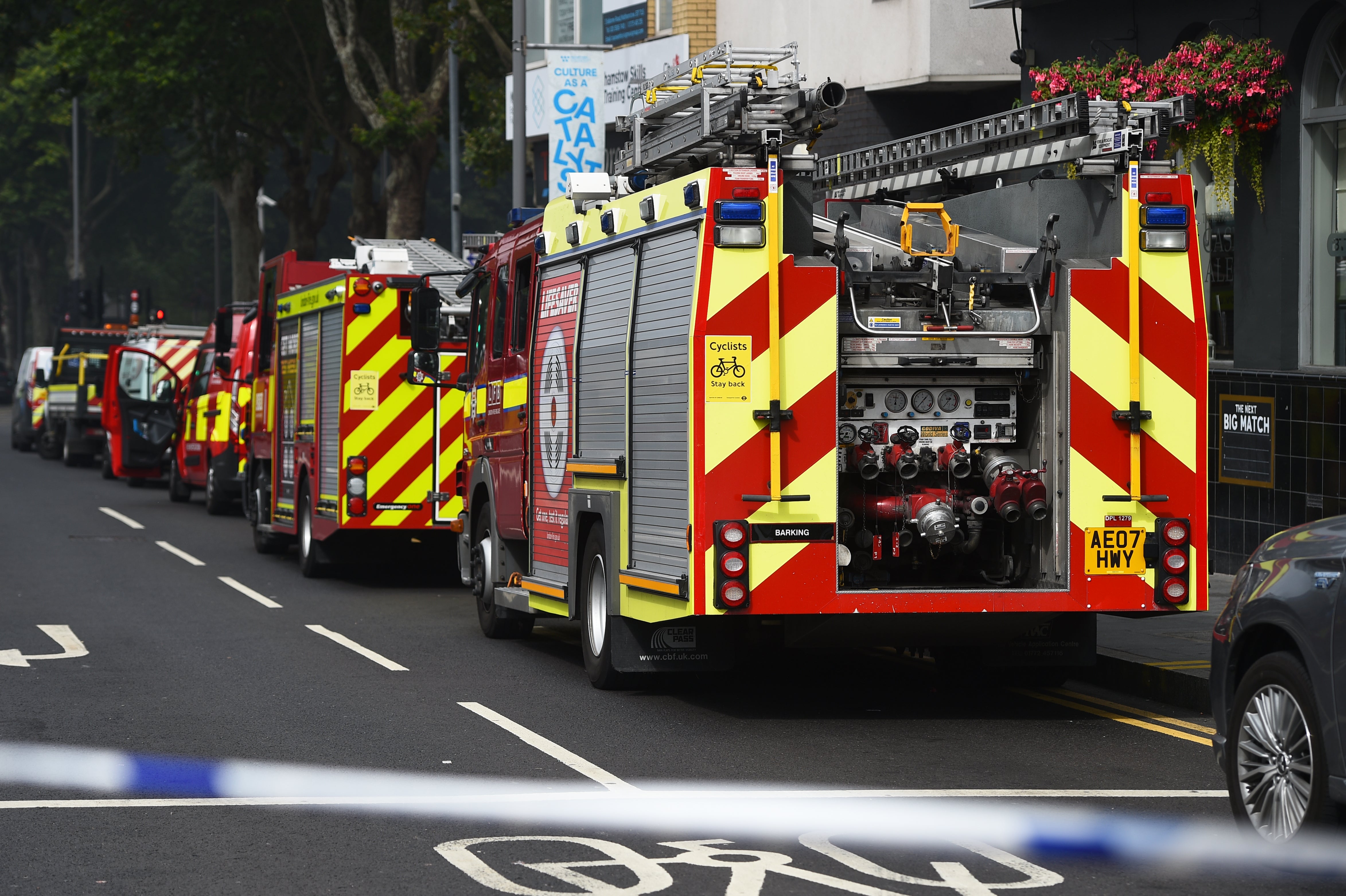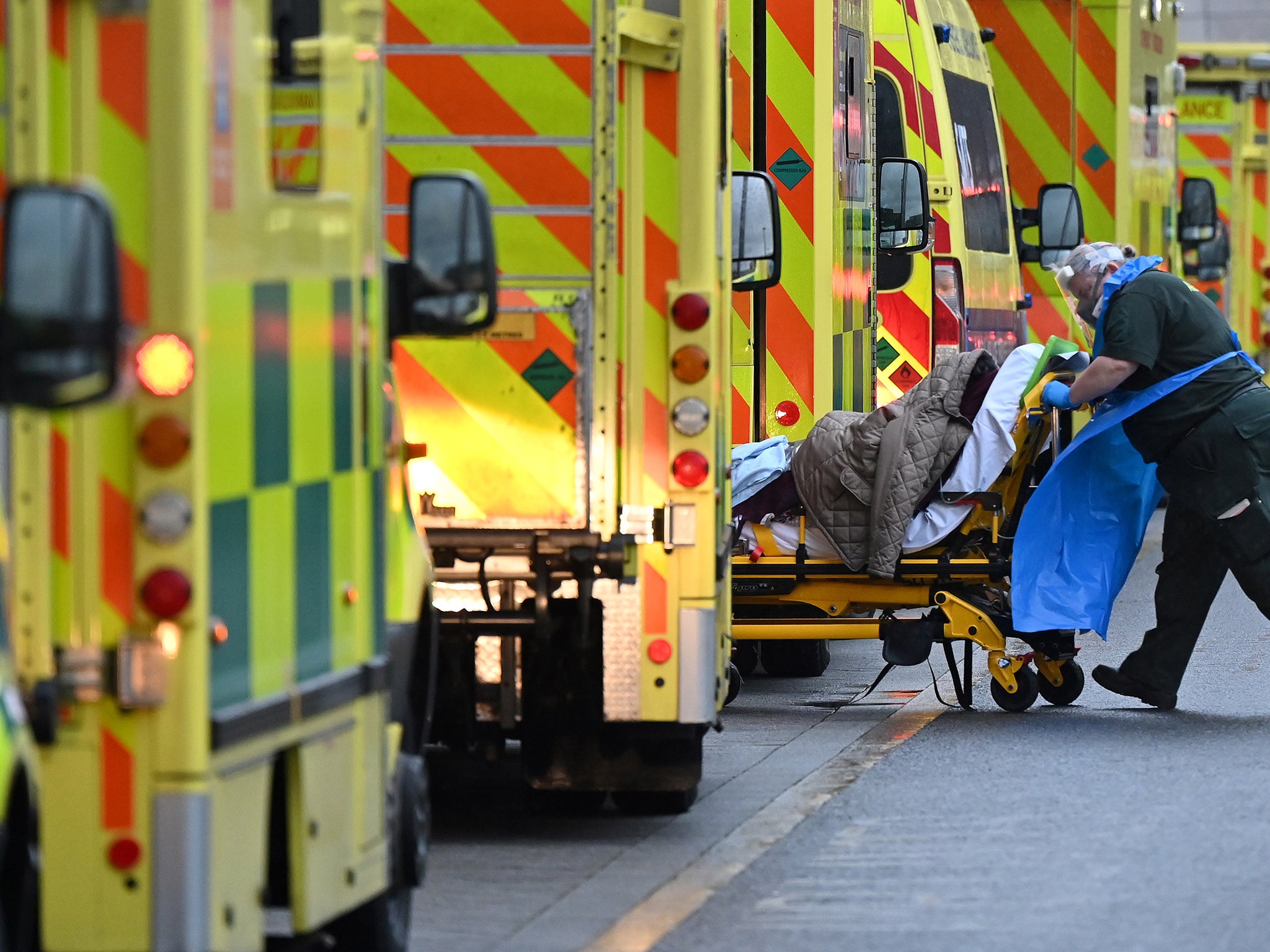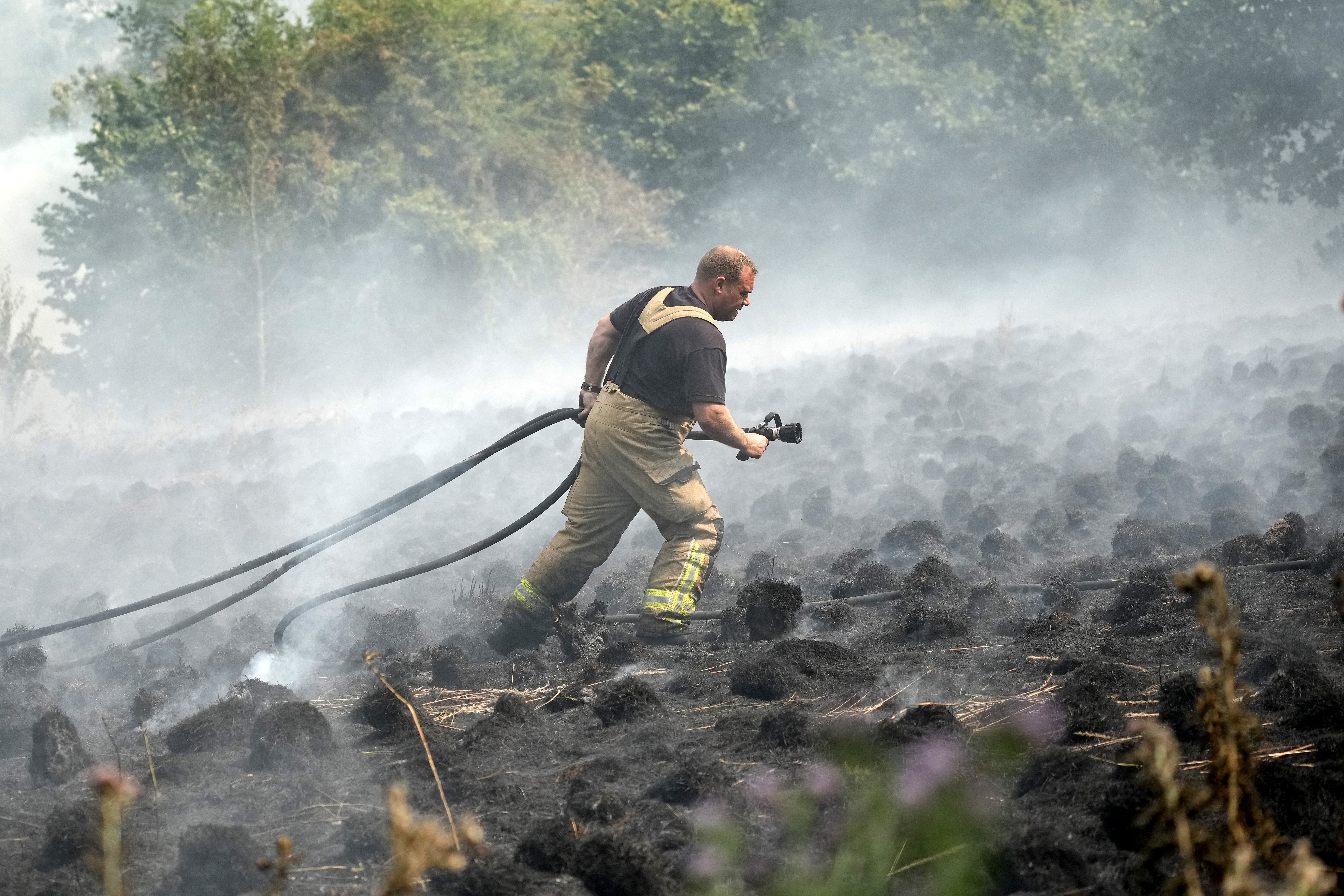Patients taken to hospital in fire engines as firefighters respond to rocketing medical calls
Exclusive: ‘What firefighters are being asked to do now is not what we were asked to do 10 years ago,’ fire chief says as they attend cardiac arrests and suicide attempts

Firefighters have resorted to taking people to hospital in fire engines amid rocketing call-outs to medical emergencies.
Fire and rescue services now respond to more “non-fire incidents” than fires in England, including cardiac arrests, suicide attempts and elderly people trapped in their homes after falls.
Official statistics show that they attended more than 18,200 medical incidents in 2021-22, an increase of a third from the previous year, and that firefighters rather than ambulances were the “first responder” in almost half of those calls.
Chris Lowther, who chairs the National Fire Chiefs’ Council’s operations committee, said the figures showed a “new reality” as firefighters step in to help struggling ambulance services.
Have you been affected by this story? If so email lizzie.dearden@independent.co.uk
“What firefighters are being asked to do now is not what we were asked to do 10 years ago,” he told The Independent.
“We are having to deal with incidents where in the past there would have been health colleagues on the scene sooner.”
Mr Lowther, who has been a firefighter in Tyne and Wear for more than two decades, said his colleagues aim to provide the necessary medical treatment at the scene before ambulances transport people to hospital.
But he added that in situations where firefighters are concerned for someone’s safety facing a long wait, “some officers have made the decision to transport someone to hospital in a fire engine”.
“It’s not something I could condone because they’re only designed to carry trained firefighters, but I understand the pressures officers have faced in the past,” he said.

Andy Dark, assistant general secretary of the Fire Brigades Union (FBU), said it would “not be in the interest of patients for that to be common practice” but that sometimes firefighters “take the initiative out of frustration or extreme concern”.
Mr Dark said crews were sometimes sent to medical incidents as first responders when the ambulance service can’t get there.
“Sometimes they do it when they’re not really sure what the call is, they’ll send the fire service to have a look and they don’t mobilise an ambulance,” he added.
“That’s a real source of frustration because if it’s someone who has a serious medical condition, particularly heart attacks, we’ve got no way to cart them off to hospital safely.”

Mr Dark said that some firefighters had been left traumatised after being sent to calls where people have died in their homes, adding: “We’re used to saving life, we’re not used to thinking we’ve failed.
“Essentially, they found themselves attending to guard the body awaiting the eventual arrival of a doctor.”
Fire services are also sent to incidents where paramedics are unable to access people who are unwell or move them safely to an ambulance, and to attempted suicides where people are on bridges or other high places.
In 2021-22, fire brigades attended 2,583 suicides and attempted suicides in England, with the figure rocketing by almost a quarter in a year.
Mr Lowther said the Tyne and Wear Fire and Rescue Service was called to a particular hotspot almost every day, sometimes seeing the same people on multiple occasions.
“In my time as a chief fire officer the frequency of attempted suicide is increasing exponentially,” he added.
“I think that’s to an extent caused by issues with mental health services provision, it’s a massive draw on our resources. It has an impact on the wellbeing of firefighters.”

Mr Lowther said that the increase in mental health-related incidents and medical calls was partly due to training changes meaning firefighters are better equipped to give first aid, but that the expanding role was a “huge draw on resources”.
“It’s time that we can’t be doing other training or being in the community preventing fires,” he warned. “If someone is on a bridge you could be there for four to six hours with five or six fire engines, so our operational ability is reduced.”
Response times have slowed for fire services nationally, with the average time to get to fire incidents rising by 15 seconds year-on-year to almost nine minutes.
The Association of Ambulance Chief Executives said there was a long history of firefighters and paramedics working together when “safe and appropriate”.
Managing director Martin Flaherty added: “We are unsighted on the precise factors contributing to the Home Office data but we would not be surprised if the increase were due to the unprecedented pressures the whole urgent and emergency care system is under.
“These are being exacerbated for ambulance services by handover delays at hospital emergency departments, which should now be a key priority for local integrated care systems to try and resolve.”
It comes after The Independent revealed that armed police have been sent to cardiac arrests because of a shortage of ambulances, amid an overall rise in medical and mental health incidents dealt with by police forces.
Several officers subsequently contacted this website with their own experiences of responding to medical emergencies.
A special constable recounted a recent incident in London where a woman collapsed at a railway station with breathing difficulties, and ambulance control sent a taxi to take them to A&E after the police provided first aid.
A PC based in Warwickshire described transporting injured people to hospital after being told that “waiting times are four hours plus for an ambulance”, and another officer in Oxfordshire said the ambulance service sent police to help a middle-aged man who had fallen in the street and broken his ankle.
A traffic officer expressed concern that police were being taken away from tackling crime by having to “deal with stuff we’re not trained for”.
A different constable said police were “increasingly dealing with welfare/safety/mental and physical health problems because there is just nobody else”.
Join our commenting forum
Join thought-provoking conversations, follow other Independent readers and see their replies
Comments




Bookmark popover
Removed from bookmarks